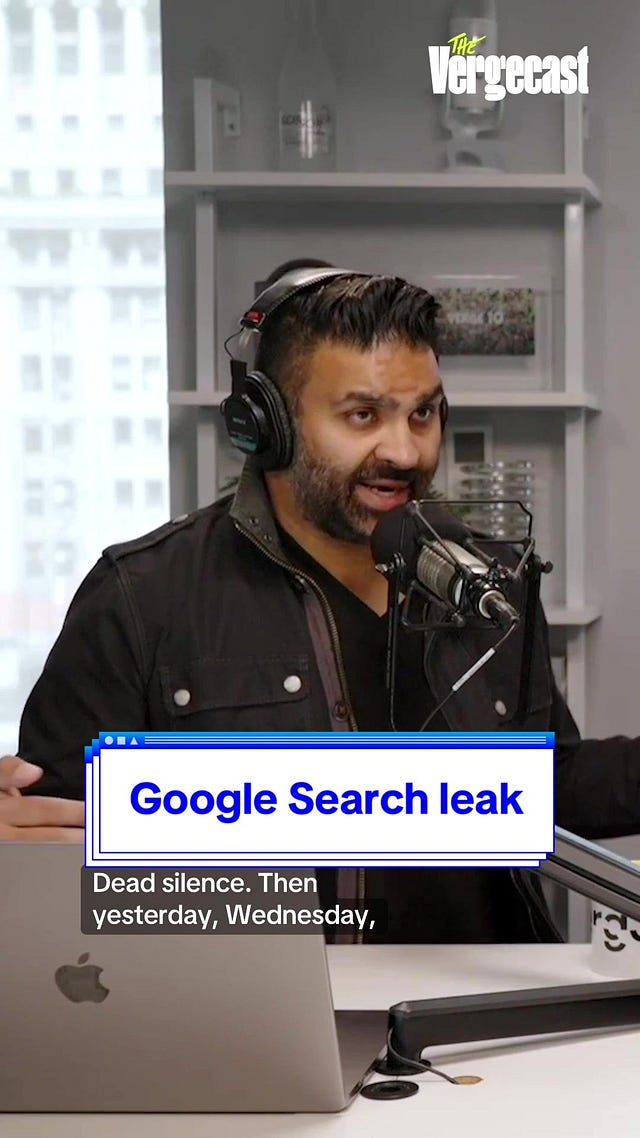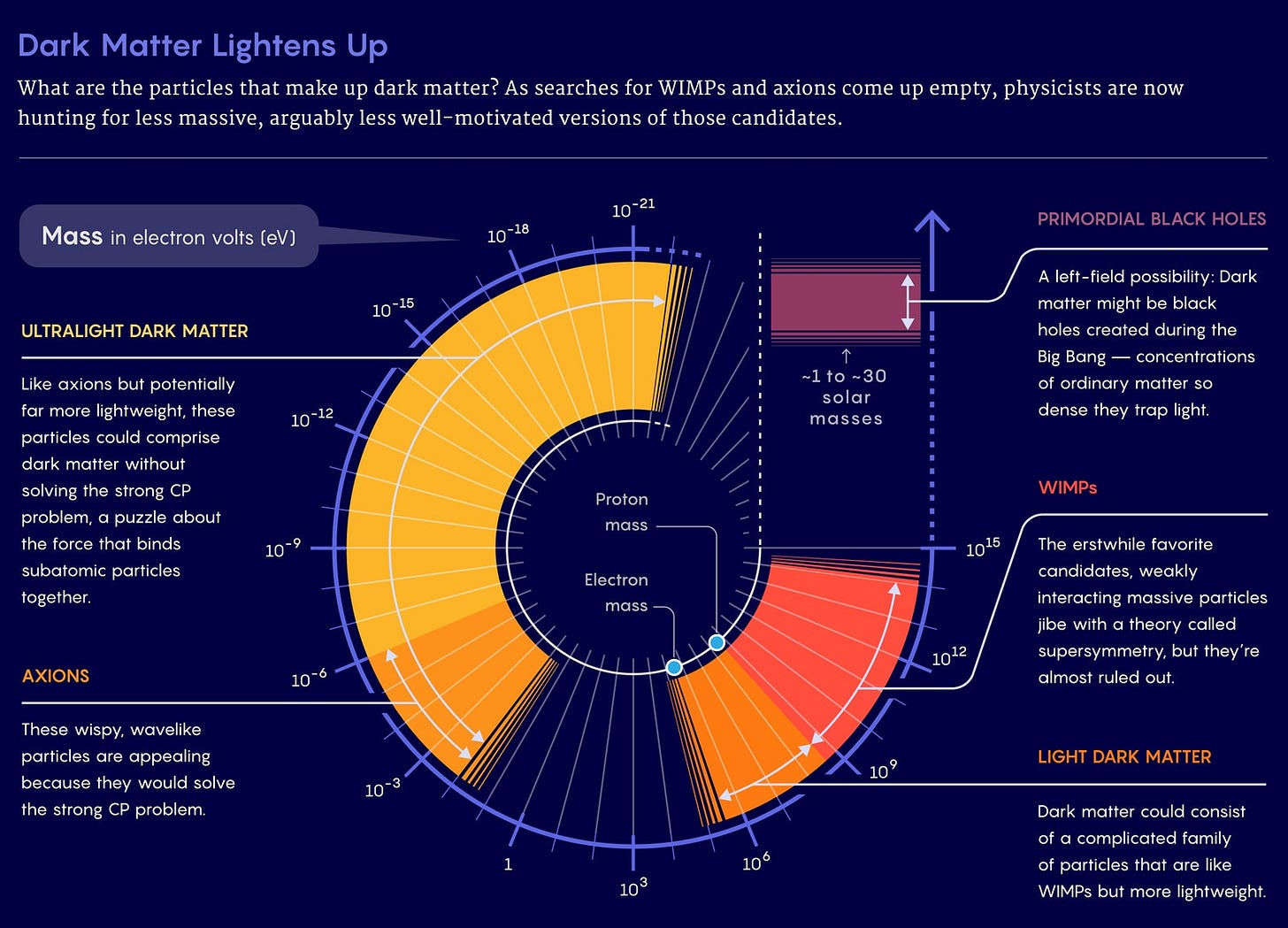AI Avatars, Ticketmaster, Google, Sleep, Dark Matter, and Milk
Weekly Roundup of News in Technology, UX and AI
If you haven’t followed us on Tiktok or Twitter, now is a great chance.
Here’s the latest news, resources, and use cases from the world of product, UX, AI and technology. Let’s go:
🤖 AI Avatars
🎫 Ticketmaster
🔎 Google Search
🌐 ChatGPT
🛏️ Sleep
🌑 Dark Matter
🥛 Milk
Podcast
Bridging the Human-Technology Gap with AI Avatars - A Conversation with Founder Chuck Rinker
Had a great conversation about AI, healthcare, and humanizing technology.
In this episode of Product by Design, I welcomed Chuck Rinker, founder and CEO of PRSONAS. Chuck shares his journey from a cattle farmer to a pioneer in AI and digital human technology. Chuck and I discuss the transformative potential of AI avatars in healthcare, their impact on patient experiences, and their broader applications in various industries. We also explore the importance of empathy, trust, and practical implementation in leveraging AI for better human engagement. Don't miss this incredibly enlightening conversation!
News and Useful Reads
The Ticketmaster Data Breach May Be Just the Beginning
As if Ticketmaster wasn’t bad enough, they’ve been hacked. But it doesn’t stop there, the system that was hacked may be Snowflake, which would make this data breach much worse and much more widespread.
One of the biggest hacks of the year may have started to unfold. Late on Friday, embattled events business Live Nation, which owns Ticketmaster, confirmed it suffered a data breach after criminal hackers claimed to be selling half a billion customer records online. Banking firm Santander also confirmed it had suffered a data breach impacting millions of customers and staff after its data was advertised by the same group of hackers.
While the specific circumstances of the breaches—including exactly what information was stolen and how it was accessed—remain unclear, the incidents may be linked to attacks against company accounts with cloud hosting provider Snowflake. The US-based cloud firm has thousands of customers, including Adobe, Canva, and Mastercard, which can store and analyze vast amounts of data in its systems.
The biggest findings in the Google Search leak
We’ve got a small peek into the black box of the Google search algorithm through some leaked API documents, and apparently we’ve been lied to for a long time.
One thing right off the bat: the Google Search algorithm has not leaked, and SEO experts don’t suddenly have all the answers. But the information that did leak this week — a collection of thousands of internal Google documents — is still huge. It’s an unprecedented look into Google’s inner workings that are typically closely guarded.
Perhaps the most notable revelation from the 2,500 documents is that they suggest Google representatives have misled the public in the past when discussing how the biggest gatekeeper of the internet assesses and ranks content for its search engine.
AI products like ChatGPT much hyped but not much used, study says
I’m surprised by this, especially as someone who uses ChatGPT and other AI tools every day. But I guess that is part of my work and hobbies. And I run in a lot of tech circles. I would have expected the numbers to be higher, but not high or a majority.
Very few people are regularly using "much hyped" artificial intelligence (AI) products like ChatGPT, a survey suggests.
Researchers surveyed 12,000 people in six countries, including the UK, with only 2% of British respondents saying they use such tools on a daily basis.
But the study, from the Reuters Institute and Oxford University, says young people are bucking the trend, with 18 to 24-year-olds the most eager adopters of the tech.
The big lie about sleep
First, all of us need more sleep than we’re getting. Very few people can get by with little sleep, no matter what our hustle culture tries to sell. And it helps if you’re wealthy, because how stressed you are plays a big part in how well you sleep.
Researchers have found that stress is one of the strongest indicators of poor sleep. Economic stress, in particular: Americans in poverty report getting the least amount of sleep. In a 2022 survey, 87% of Americans polled said they lost sleep worrying about their finances. And in a 2020 study, 13% of newly unemployed people said they got four hours of sleep or less a night, half of what the average employed person gets. In counties where about half the population doesn't get enough sleep, many of which are in Alabama, unemployment rates are twice as high as the US average, and median household incomes hover around $35,000.
Other Interesting Finds
The Hunt for Ultralight Dark Matter
One of my Roman Empires is the fact that we don’t know what makes up the majority of our universe. We just call it dark matter and dark energy. We only see and understand a small fraction, which is so fascinating. We have lots of theories, and they continue to evolve, but they are all just guesses still, including the idea in this article of
For decades, researchers focused on two candidate particle types: weakly interacting massive particles (WIMPs) and axions. These are the simplest formulations for dark matter, and each type of particle would also elegantly solve other physics mysteries. But after roughly 40 years of vain searches for these particles—searches that have almost entirely ruled out the chance that dark matter is made of ordinary WIMPs—physicists have become far more open-minded about what dark matter might be. Maybe dark matter is not simple at all. It could, some suggest, comprise a whole family of particles, as does visible matter…
While these researchers await the faint signals of feeble particles, other dark matter ideas remain in play. Some theoretical physicists are reconsidering a long-sidelined idea that this invisible matter might take the form of primordial black holes created during the Big Bang. One more possibility is that the prevailing theory of gravity isn’t quite right. So far, however, competing gravity theories haven’t garnered much interest.
“At this point,” Schuster said, “let’s be honest, everybody is guessing.”
Big Milk has taken over American schools
If you’re like me, you grew up with the idea that milk was essential to strong bones and good health. It was unquestionable. We had to drink milk every day. But why? Well, like most things, because the milk industry paid a lot of money to get everyone to believe it, so we’d buy milk.
Dairy’s stranglehold on school food began some 80 years ago and has only tightened since. It was built on the outdated idea that cow’s milk is essential for children’s health — an idea that has had immense staying power due to a vast and deep-pocketed marketing, lobbying, and research machine. That misconception has resulted in policies like the one Williamson was up against, and the nationwide requirement that milk must at least be offered, and in many schools must be served, to every student at every school meal.
In recent decades, though, milk consumption has rapidly declined while nutritionists have increasingly come to question milk essentialism. Most people of color — along with one-fifth of white people — can’t even properly digest it, and it’s not necessary to the maintenance of a healthy diet.






